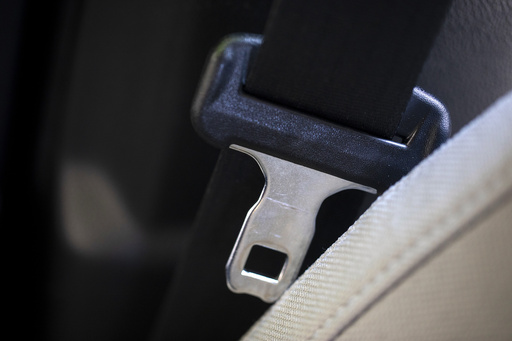
DETROIT — Beginning in September 2027, all newly manufactured passenger vehicles in the United States will be required to emit a signal if rear-seat passengers do not buckle their seat belts.
The National Highway Traffic Safety Administration (NHTSA) announced the finalization of this regulation, which also mandates improved notifications when front seat belts are unfastened.
According to NHTSA estimates, this initiative is expected to save approximately 50 lives annually and prevent around 500 injuries once fully implemented.
This new regulation will affect various types of vehicles, including passenger cars, trucks, buses (excluding school buses), and multipurpose vehicles that weigh up to 10,000 pounds.
Previously, seat belt warnings were only obligatory for the driver’s seat. Under this updated rule, warnings are now also required for outboard front-seat passengers who fail to secure their belts. However, front-center seat passengers will not receive any warnings, as NHTSA determined that it would not be economically viable to do so.
The agency noted that most vehicles already come equipped with warnings for outboard seating.
Additionally, the regulation extends the length of both audio and visual alerts for the driver’s seat. The new front-seat requirements will be in effect starting September 1, 2026.
NHTSA has indicated that seat belt usage rates for rear passengers regularly fall behind those of front passengers; in 2022, the usage rate for front seat belts was nearly 92%, while rear-seat usage was around 82%.
Alarmingly, about half of the individuals who died in car crashes two years ago were not wearing seat belts, as per NHTSA’s findings.
This updated seat belt rule marks the second major regulation released by NHTSA in the last two months. In November, the agency enhanced its five-star auto safety ratings system to include assessments of driver assistance features and protections for pedestrians.
Safety advocates are urging the Department of Transportation, which includes NHTSA, to finalize additional regulations before the conclusion of the Biden administration, especially since President-elect Donald Trump has voiced his opposition to new government regulations.
Cathy Chase, the president of Advocates for Highway and Auto Safety, has called on the department to authorize automatic emergency braking systems for heavy trucks and to develop measures aimed at preventing impaired driving.
